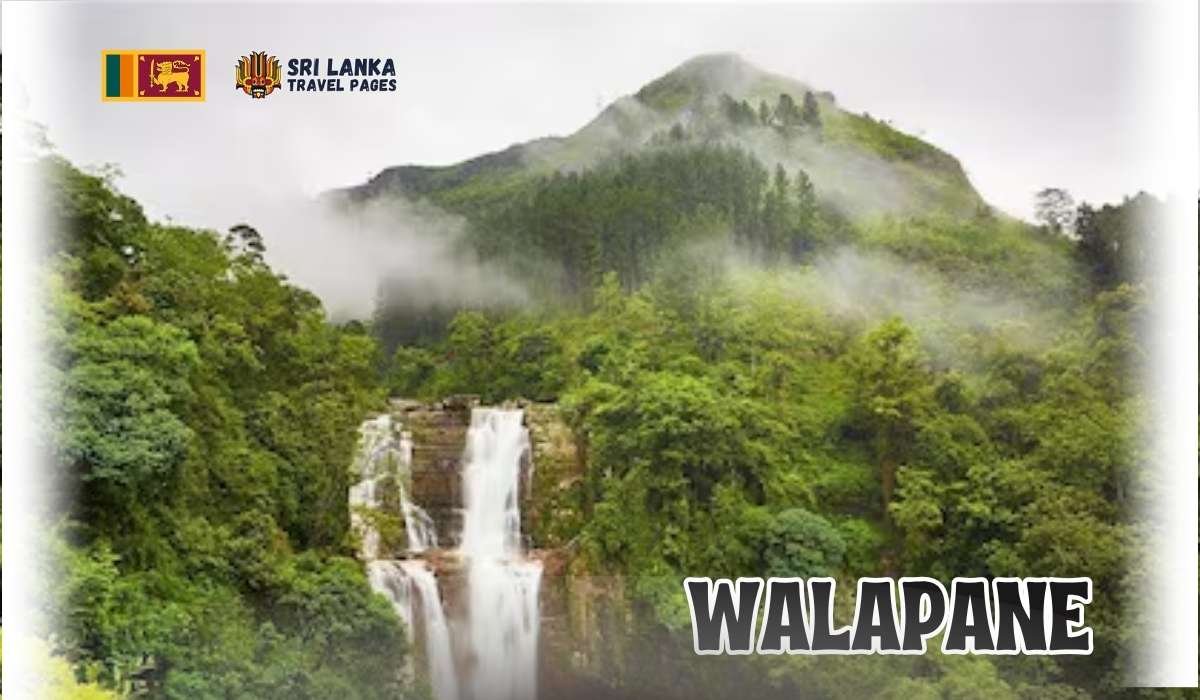
Walapane è una pittoresca cittadina situata nella Provincia Centrale dello Sri Lanka, nota per il suo clima fresco e le dolci colline. Circondata da fitte foreste e piantagioni di tè, offre un tranquillo rifugio lontano dal caos delle città. La zona è ricca di biodiversità e vicina a numerose cascate e riserve naturali, il che la rende una meta ambita dagli amanti della natura e degli escursionisti. Le comunità di Walapane, unite tra loro, mantengono uno stile di vita tradizionale, con templi buddisti e festival locali che mettono in risalto la vivacità culturale della regione. Il suo ambiente sereno e i suoi splendidi paesaggi rendono Walapane una destinazione tranquilla per i visitatori in cerca di esperienze naturalistiche e culturali.
Popolazione totale
115,000
Divisioni GN
62
Dove le dolci colline incontrano la natura e la tradizione
Walapane – Un rifugio sereno negli altopiani centrali
Situato nel distretto di Nuwara Eliya della provincia centrale dello Sri Lanka, Walapane è una città tranquilla nota per il suo clima fresco, le rigogliose piantagioni di tè e la bellezza naturale. Con una popolazione stimata nel 2025 di circa 110.000Walapane offre un mix di fascino rurale e ricca biodiversità.
Paesaggi naturali ed ecoturismo
Circondata da fitte foreste, cascate e colline avvolte dalla nebbia, Walapane è la porta d'accesso a numerose riserve naturali e sentieri escursionistici. La zona attrae ecoturisti e amanti della natura in cerca di tranquillità e avventure panoramiche.
Tradizioni agricole ed economia
L'agricoltura svolge un ruolo fondamentale nell'economia di Walapane, con piantagioni di tè, ortaggi e spezie che dominano il paesaggio. Le laboriose comunità locali continuano a coltivare metodi agricoli tradizionali, affiancandoli a pratiche agricole moderne.
Patrimonio culturale e vita comunitaria
Walapane ospita vivaci comunità buddiste, con templi e festival culturali che ne riflettono le radici spirituali. La zona promuove uno spirito comunitario unito, in cui tradizione e vita quotidiana sono strettamente intrecciate.
Istruzione e infrastrutture locali
La città garantisce l'accesso a scuole, centri sanitari e servizi alla comunità, favorendo la crescita educativa e il benessere dei suoi residenti.
Trasporti e accessibilità
- 🚗 Su strada: Collegato a Nuwara Eliya e alle città circostanti tramite una rete di strade locali.
- 🚌 In autobus: Frequenti servizi di autobus collegano Walapane ai centri urbani e ai villaggi rurali vicini.
Un tranquillo rifugio tra gli altopiani dello Sri Lanka
Combinando splendore naturale, ricchezza culturale e un ritmo di vita tranquillo, Walapane è una destinazione gratificante per chi esplora il cuore degli altipiani centrali dello Sri Lanka.
| Codice GN | Nome in inglese |
|---|---|
| 005 | Sarasunthenna |
| 065 | Ketakandura |
| 070 | Batagolla |
| 075 | Thennehenwala |
| 080 | Deliwala Sud |
| 085 | Deliwala Nord |
| 090 | Pannala |
| 095 | Serupitiya |
| 100 | Mailagasthenna |
| 105 | Andawela |
| 110 | Naranthalawa |
| 115 | Ihala Pannala |
| 120 | Wewakele |
| 125 | Kumbalgamuwa |
| 130 | Kumbalgamuwa Est |
| 135 | Mulhalkele |
| 140 | Manelwala |
| 145 | Wathumulla |
| 150 | Kendagolla |
| 255 | Egoda Kanda |
| 260 | Kandegama |
| 265 | Walapane |
| 270 | Kurunduoya |
| 275 | Liyanwala Ihalagama |
| 280 | Madumana |
| 285 | Ilukpelessa |
| 290 | Unagola |
| 295 | Liyanwala Pahalagama |
| 300 | Medakandura |
| 305 | Galabada |
| 310 | Ambagaspitiya |
| 315 | Munwatta |
| 320 | Landupita |
| 325 | Wetekgama |
| 330 | Padiyapelella |
| 335 | Napatawela |
| 340 | Ukuthule |
| 345 | Yatiwella |
| 350 | Wetagepatha |
| 355 | Ukuthule Est |
| 360 | Alakola Wewa |
| 365 | Watta dell'alta foresta |
| 370 | Mahakudugala |
| 375 | Brookside |
| 380 | Foresta alta |
| 385 | Binganthalawa |
| 390 | Maha Uva |
| 395 | Werella Pathana |
| 485 | Morabedda |
| 490 | Harasbedda Nord |
| 495 | Mahapathana |
| 500 | Harasbedda Sud |
| 505 | Palalpathana |
| 510 | Rathnayakapura |
| 515 | Ragala Watta |
| 520 | Manthreethenna |
| 525 | Pandithaya Kumbura |
| 575 | Senarathpura |
| 580 | San Leonardo |
| 585 | Ragala |
| 590 | Ekangapura |
| 595 | Samagipura |
